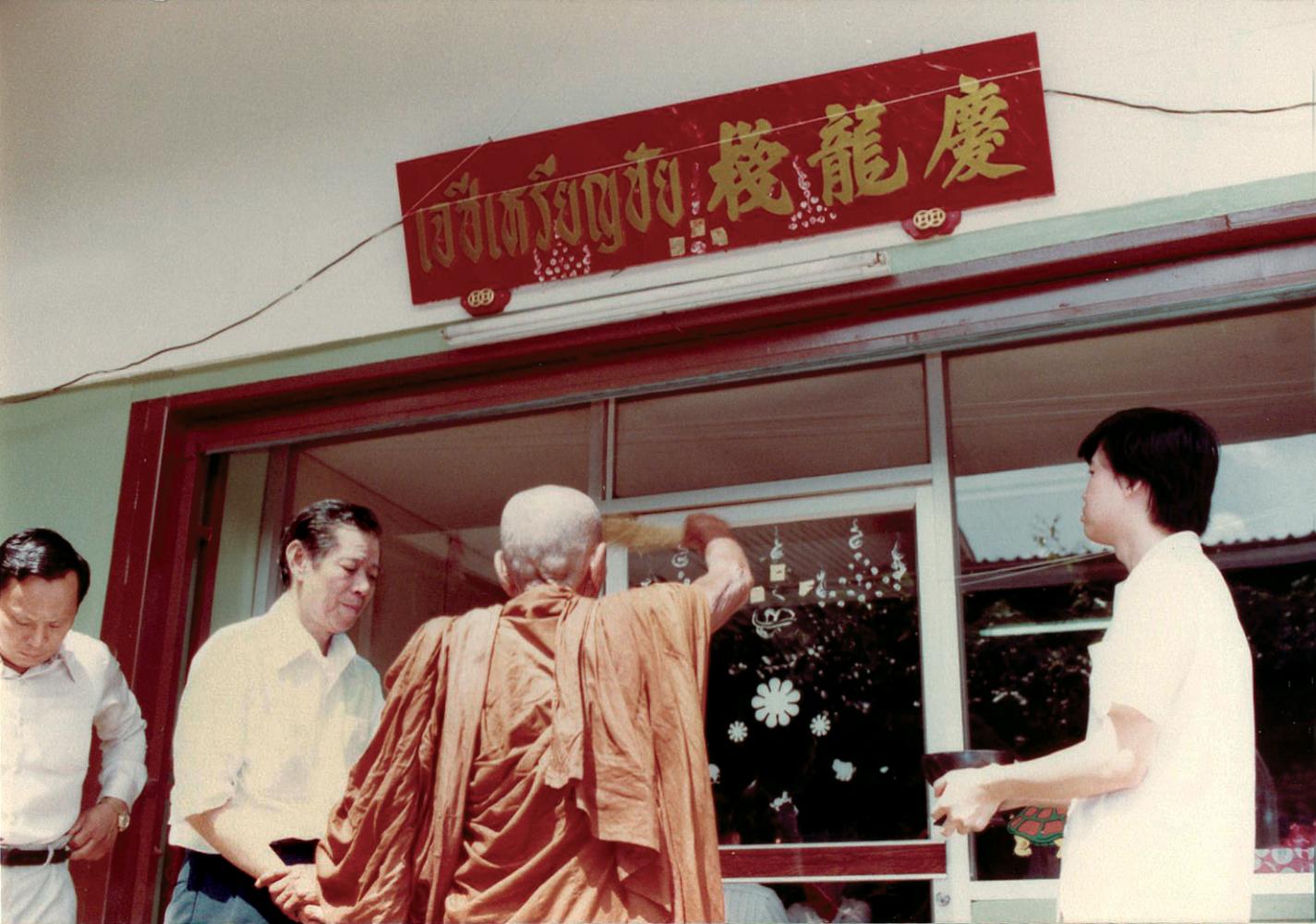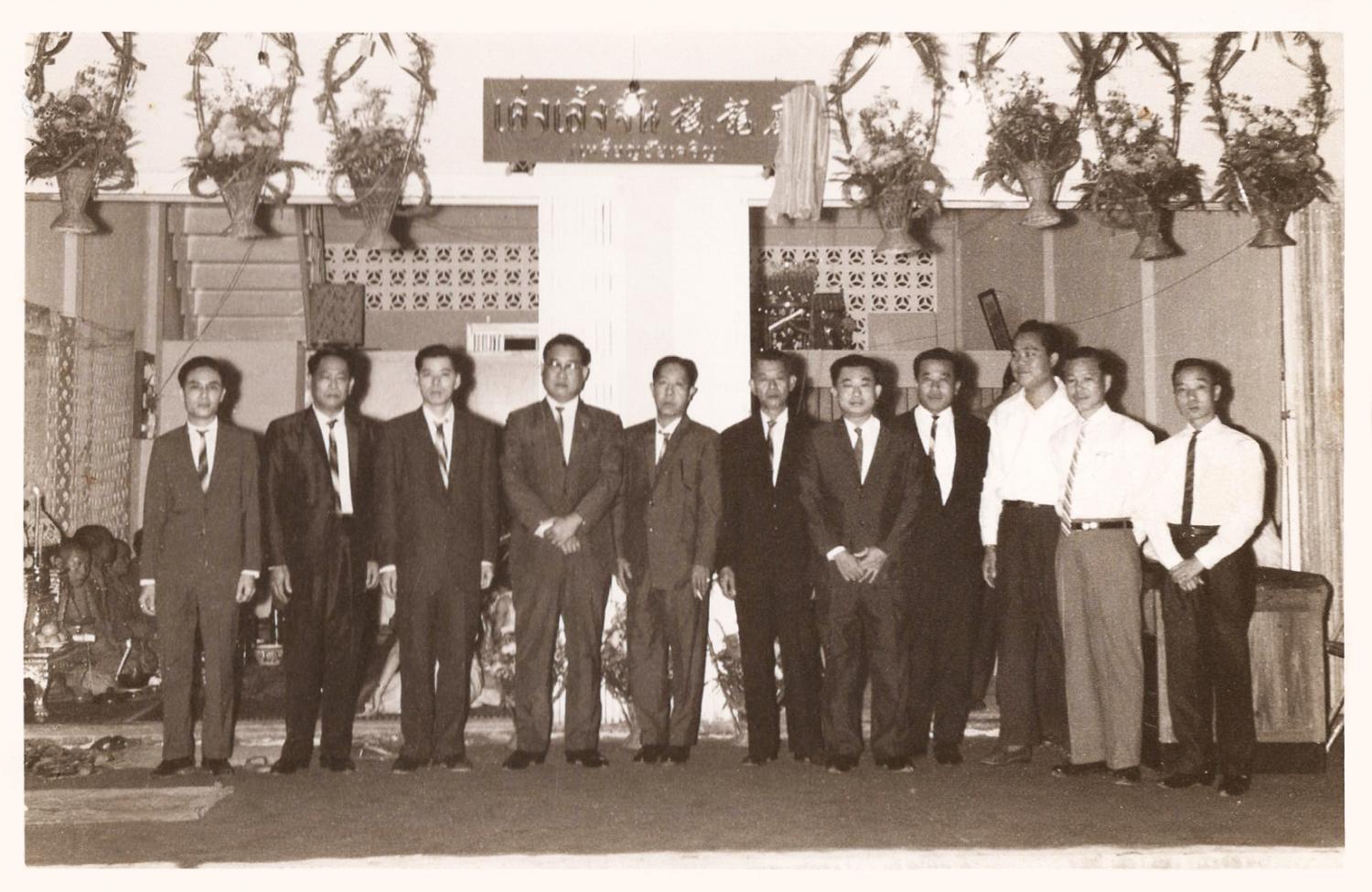Phonrapee Rianchaivanich and his three siblings would like to build a time machine, but not the kind seen in sci-fi movies that transports people to the past or future. Instead, they want to turn the clock back to the 1990s when Oden-ya was a popular corn snack.
Influenced by Japanese culture, Oden-ya is a seafood-flavoured corn snack that comes in a yellow packet. On the lower-left corner is a mascot holding a bowl of ball-shaped corn snacks. Introduced in 1989, Oden-ya also became popular cartoon cards as students hunted for these treasures and this paved the way for a subculture of trading cards.
After three years of painstaking research, SPR Food Industry brought Oden-ya back to life on Oct 21. Available at 7-Elevens, each packet costs 20 baht and offers two Dragon Ball Z cards. Collectors are again searching for these treasures, causing a frenzy and shortage.
"My grandfather opened a yeepua [a Chinese term for a wholesale shop] in 1953. He learned about all sorts of snacks and then opened a factory in 1969. Our family members are foodies," said Phonrapee, 38, who oversees product design and development. "In those days, seasoned corn snacks and cartoon pictures were kept in a transparent packet, costing 25 satang each."

Phonrapee's grandfather, left, and father, right, at the opening of the factory. Thana Boonlert
After his father inherited the business in 1969, he began to develop other flavoured snacks. It was not until 1989 that his father launched Oden-ya amid the wave of growing Japanese influence in Thailand. Many games and cartoons were household names. Children read comics and watched anime on Channel 9 and Channel 5.
"My father started to put toys in packets ranging from cards and stickers to plastic coins and figures, but Oden-ya became the greatest hit, offering around 38 or 39 cartoon card collections.
"When he visited Japan, he was impressed by the warm atmosphere of Oden shops where friends met and enjoyed a variety of delicious foods, hence the name Oden-ya," he said.
At the age of seven, Phonrapee witnessed the growing popularity of his father's creation. Unlike other snacks, Oden-ya always delivered its flavour. He remembers seeing friends holding packs of cartoon cards and playing with them during breaks. After school, they flocked to buy the snack, which cost 5 baht each.
"That is how the trading card subculture took hold. In those days, we were trailblazers," he said.
Apprenticeship is a method by which parents pass down the trade to their children. Phonrapee said his father, who learnt the business from his grandfather, taught his children many lessons. He gave them pocket money for surveying other snacks in the market.
"Being stuck in traffic, my father asked us to criticise them. What were their strengths and weaknesses? How could we improve their products? That is how we learnt the ropes," he said.
However, the craze for Oden-ya did not last forever. Phonrapee said every product has a lifecycle because student consumers grow up and become interested in other things. As cartoon mania began to fizzle out, the Tom Yum Kung financial crisis in 1997 followed.
"The factory shifted its focus to the foreign market. It eased domestic production and started exporting Oden-ya and a new product called Cocori Balls to other countries," he said.

Somkij Rianchaivanich, Phonrapee's grandfather, opened a wholesale shop in 1953. Phonrapee Rianchaivanich
Also invented by his father, Cocori Balls are corn snacks with cuttlefish and butter coconut flavours. Cocori Nuggets offered a variety of new tastes -- grilled cuttlefish, sesame seaweed and spicy chicken.
A few years later, his brothers inherited the business. Many challenges await third-generation descendants. Phonrapee said they made an effort to improve the factory to meet international standards and promote snacks in the foreign market.
"Our snacks were popular in Taiwan and Hong Kong as they were available in hotels and convenience stores. In Europe, transport charges were very high due to distance, so the snacks were kept in cans for durability and sold in Asian grocery stores. Our products even made it to Kazakhstan," he said.
However, the coronavirus pandemic has posed the greatest challenge to their business. Phonrapee said the shortage of freight containers increased transportation costs and the company had to put the snacks in cans to reduce storage space. Unfortunately, the pandemic also hit while they were planning to reproduce Oden-ya for local fans to celebrate the 30th anniversary this year.
"We spent three years researching our father's work. The design and flavour were the same as the original. The packets come with Dragon Ball Z cards because it is the only Japanese cartoon that has continued up to now. It is like a bridge between the 1990s and the present. The public's response exceeded our expectations. At first, we could not keep up with consumer demand, but we are ramping up production now," he said.
Phonrapee said the cards are still divided into categories, but trading has evolved over time. In the past, collectors were limited to people at the same school, but social media has expanded the collector community. However, he wants to make sure cards are equally distributed.
"The current law requires cards to be kept outside. The design allows consumers to unpack cards and keep the snack for later. If we put freebies inside, leftover snacks will go to waste. In fact, some collectors offer them to monks and orphans," he said.
When the descendants started this project, they remembered the carefree days of childhood. Phonrapee said the project is a time machine that will transport everyone to the 1990s.
"My brother's friends got in touch again and talked about Oden-ya," he said.
Phonrapee said that Oden-ya will return as the "leader of cartoon cards". When this collection runs out, the company will introduce new cards and make them interactive to reach the young generation. Collectors will be able to scan QR codes on physical cards and play them on mobile phones and computers.
"Due to the pandemic, we go out less. Online sales channels have increased in importance. That is how the post-pandemic world will look like," he said.
Many experts have explained the phenomenon of nostalgia marketing. Consumers who were born in the 1990s can be divided into two groups. While some are struggling financially, others have achieved financial independence and can fulfil their desires. However, the analogue lifestyle is their defining feature. They crave slow living because the world moves at a fast pace today.
Bunyarit Saelim, 25, was born too late but still amassed cartoon cards and stickers like Dragon Ball, Pokémon and Naruto from Wall's ice cream and traded some of them for toys. He has joined the collector community on Facebook.
"I feel like I am travelling back to childhood. When I heard of the revival of Oden-ya, I jumped in joy because Dragon Ball is my childhood cartoon. I enjoyed the plot and its characters, especially Son Goku and Vegeta," he said.
Bunyarit started hunting for the legendary snack in his neighbourhood. After surveying all branches of 7-Elevens, he found they put around eight packets on shelves. He once used an application for tracking the stock, but shop assistants hid some of them for reselling.
"Many collectors face this problem. Products are out of stock because manufacturers can't keep up with demand and speculators are reselling them," he said.
Dragon Ball Z cards come in four groups -- normal, rare, special rare and super special rare -- but collectors are searching for the last group in which there are only 150 items. Weeks ago, a collector paid 50,000-130,000 baht for four exclusive cards.
With the advent of social media, the trading card subculture is now growing at an exponential rate. Following the easing of virus restrictions, collectors recently met in-person to swap anime toys, including Dragon Ball Z cards. Bunyarit is one of those who gathered at a café.
"Collectors can trade cards for items they don't have, but cards must belong to the same category. If not, they should have equal value. I have collected 100 cards in the normal, rare and special rare group. I am hunting for super special rare items now. Do you have any?" he said.

